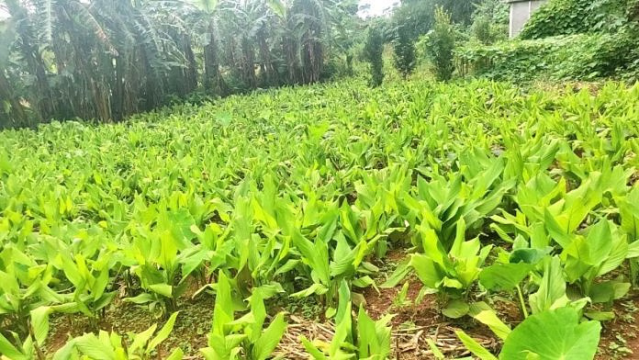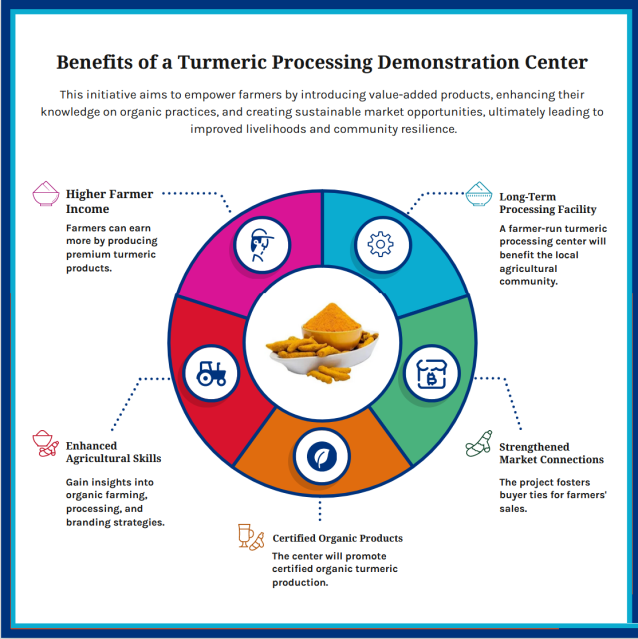The agricultural economy of Ri Bhoi District heavily relies on traditional farming practices with minimal value addition, limiting farmers' income potential. To address this, Rongjeng Welfare Foundation proposes the establishment of a Spice Processing Center alongside a farmer training program to enhance value addition, processing, packaging, branding, and market access for agro-horticulture products like turmeric, ginger, black pepper, cinnamon, amla, bay leaves, banana, and tapioca.

Objectives
- Establish a Spice Processing Center for turmeric, ginger, and other spices.
- Provide hands-on training in value addition, packaging, and branding.
- Educate farmers on regulatory compliance (FSSAI, organic certification, etc.).
- Promote organic farming practices and technical support for chemical-free production.
- Facilitate market linkages and licensing coordination with relevant agencies.
Key Components
A. Spice Processing Center
- Processing units for peeling, grinding, drying, and powdering of spices.
- Machinery for packaging and labeling to ensure market-ready products.
- Storage facilities for raw and processed spices.
- Eco-friendly 20x40 ft processing shed constructed using bamboo and thatch.
B. Farmer Training & Capacity Building
- Value Addition Training
- Processing techniques for spices and agro-horticulture products.
- Usage of modern and traditional processing equipment.
- Packaging, Branding & Compliance
- Understanding FSSAI certification and compliance.
- Hands-on packaging training to enhance shelf life and market appeal.
- Branding strategies to secure premium pricing.
- Market Awareness & Organic Certification
- Importance of value addition and organic produce in premium markets.
- Training in organic manure and pesticide production.
- Technical & Market Linkage Support
- Continuous guidance on nursery development, seed selection, and organic farming.
- Assistance in securing buyer connections and certifications.
Implementation Plan
| Phase | Activities | Timeline |
|---|---|---|
| Phase 1 | Site selection, procurement of machinery, processing shed construction. | Month 1 |
| Phase 2 | Training module development, farmer registration, processing unit installation. | Month 2 |
| Phase 3 | Farmer training, initial production, branding, and packaging. | Month 2 |
| Phase 4 | Full-scale operations, market linkage, licensing coordination. | Month 3 onwards |
Expected Outcomes
- Increased farmer incomes through value-added spice products.
- Improved knowledge of packaging, branding, and certification requirements.
- Market-ready organic spice products with FSSAI compliance.
- Adoption of sustainable and organic farming practices.
- Strengthened market access through strategic linkages.
Sustainability & Scalability
- Revenue Model: A nominal fee will be charged for processing services to cover operational costs.
- Self-Sustaining Center: Profits from spice processing and branding will be reinvested into maintenance and expansion.
- Future Expansion: Collaboration with government schemes and bank loans to scale operations.
This initiative will empower farmers in Ri Bhoi District with the knowledge, tools, and market access necessary to transform raw produce into high-value products. By fostering community-driven agribusiness development, this project will serve as a replicable model for sustainable rural entrepreneurship.
